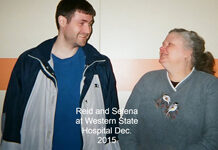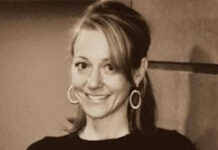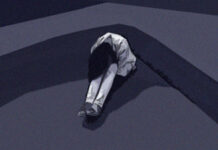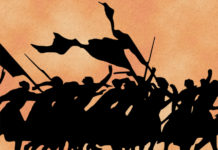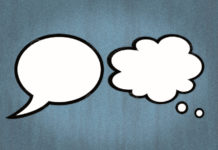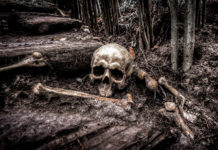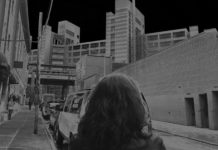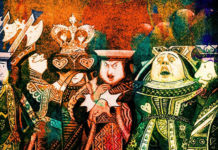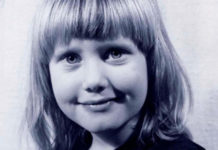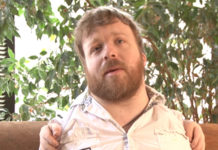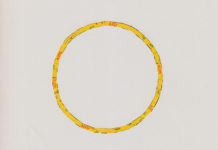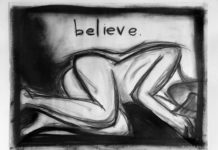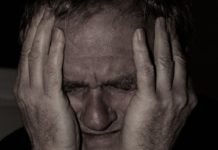My Daughter and Prozac
While our daughter was growing up, my ex-wife treated our daughter’s body like a temple. She was the only kid among her friends not allowed to drink soda or cow’s milk as they might negatively affect her health. But Prozac for mild anxiety? Sure, no problem. I was honestly and genuinely shocked.
Backing Away from Psychiatry
I believe now that fifteen years is more than a fair try. Fifteen years of getting treatment without returning to function is actually insanity. I should have given up after year two. Instead of trusting my intuition and insight, I pushed it down and down... until it finally fought its way back to the surface.
I am Insane
I have been here at Western State Hospital for almost five years. While I’ve been told that I’ve met all the criteria for a conditional release, the hospital won’t grant me this because I can’t prove that I won’t be dangerous in the future. Can anyone prove this? Even convicts don’t have to prove they’re ‘safe’ before they are freed.
They Call This “Help”
“Won’t they know I’m lying?” I asked. “Won’t they know I’m an impostor?” “No,” he said, “not at all. You can tell them you’re suffering from delusions and they’ll believe it almost without question. It doesn’t matter if you don’t have any history of psychiatric illness or hospitalization, just make up some nonsense about hearing voices and they’ll swallow the whole thing hook, line and sinker.”
Falling Through the Cracks
I am an award-winning singer/songwriter with a number one record to my credit. I also owned several small businesses and founded a 501c3 non-profit for women's health. I ate healthy, swam and cycled every day and had a very active lifestyle. This was before benzos came into my life.
My Pharmaceutical Reincarnation
I lost almost four years of my life, and I’ve not a doubt that it was due to those “life-saving” pills. To that end, they did work. At a time when I was doubled-over with depression, those four prescriptions kept me alive. But then they killed me slowly and brought me back as a stranger.
Reclaiming My Voice
Everything was not okay, but how could I possibly explain? That I don’t belong here. That I am a phony, a fraud. That I am damaged beyond repair and unsuitable for this work. I felt it happening again: the pressure building in my chest and the tears burning my throat at the prospect of someone discovering my deepest, darkest secret. The precursor to my entire life falling apart.
A Moment Passed Too Often
What if, in that moment, nothing happened? What if I was given a second to collect myself enough to engage in the conversation surrounding my future? No one asked me what I would like to do. I was never given the chance to regain my equilibrium before I was drugged and bagged for the next decade.
Daughter of a Psychiatrist
Here I was, 15 years old and already in a long-term treatment facility. I was, on paper: crazy! This entire time, all the adults in my life had been speaking for me. I never felt like I was any of the things they said, but I went along with it. What else could I have done? Every time I rebelled, it only confirmed to my mother what she thought of me.
Not Seen
I am The Invisible Woman. A woman with a nice enough bag, a calm demeanor, and well-put-together clothes (they are not “odd,” they attract no attention). You might see me walking my dog near where I live, smiling at my neighbors, making small talk. People make all sorts of comments to me about the crazies. It never occurs to them that I might be among this so-called population.
My Time at Bellevue
I've never been so proud of such a display of civil disobedience. These heretofore robots, pumped with power sedatives, still possessed human emotions and had, overnight, found a voice to express their discontent. The riots would continue for several more nights and the ward became a chaotic jungle.
The MD and the Imaginary Eating Disorder
He could have asked me if there was a specific event that had precipitated my suicide attempt. He could have asked if I had a history of trauma. He could have simply asked, “What happened?” “What are you feeling?” or “So what’s going on?” Nope. He chose to open our meeting with an accusatory remark about a make-believe eating disorder.
Beneath the Fog
The medication left me emotionally numb, making it impossible to connect with people or sense the aliveness of the world around me. But after two years on antidepressants, I found something that gave me jolt of feeling strong enough to wake me up for a moment. I then spent the next seven years giving myself daily doses of horror to induce an emotional reaction.
Our Day in Mental Health Court
For weeks I had been trying to get released from the psychiatric ward, and none of my arguments, compliance, or attempted air of normality had made an impression on the barely-visible ward psychiatrist. I had, I was told, made a very serious suicide attempt and this was a predictor of future attempts. They would let me know when they thought I was sufficiently remorseful and stabilized to be released.
Simple Things
Sometimes it's the simple things that keep us going, especially when the complicated ones seem so overwhelming; when there's too much chaos, too many emotions, too many possibilities and impending disasters. No one can give you a reason to live. You have to find it for yourself. Until you do, try simple things. For me, it was a turtle.
Doctor O’s Adventures in Wonderland
I am a female physician who survived my own suicide attempt. I had managed to fly under the radar as a very progressive family MD for twenty years. And when I stumbled and bled, the sharks were there ready to devour the carcass. Do I believe that racism and sexism influenced charges being filed against me? I certainly do.
“All for the Best of the Patient”
For psychiatric ‘help’ to happen by force is a paradox and makes absolutely no sense. It can destroy people's personality and self-confidence. It can lead, in the long run, to physical and psychological disability. My dear daughter Luise got caught in this ‘helping system’ by mistake, but she didn't make it out alive. I'm sad to say I later discovered that the way Luise was treated was more the rule than the exception.
Life, Unarmed
When I was born, everyone was expecting me to have arms. The doctor's mind raced; how am I going to tell this mother and the father that their son has hands but not arms? If he's missing so much in his extremities, mustn’t he also be missing a mind? My mom looked into my eyes and knew - in a way that only mothers know - that I had a mind, and spirit.
Regarding the Impossibility of Recovery
Popular illness narratives tend to be of the restitution sort: I was living my life, I became sick, I got well and picked up where I left off. However, this idea that ill health is a journey to wellness doesn’t help someone with a chronic illness or disability to tell her own story, which may not have a (conventional) happy ending. The notion of ‘recovery’ can be damaging when a return to health may not be possible.
Advice on Coping With Voices
What are some tactics used by voices, and what can you do about it? I hope the suggestions in this piece can help desperate voice-hearers become more understanding of the forces behind their agony, and perhaps bring a more enlightened perspective to the chemically-lobotomizing tendencies of their psychiatrists who treat voices with more medication.
Bloodtime
Free flow had characterized my creative process — and now an art practice that had come naturally since my childhood was extinguished. Not only were my reproductive capabilities shut down on psychiatric drugs, my ability to create art had been effectively disabled.
My Diagnosis of ADHD and the Downfall That Followed
A simple, one-time visit to an unfamiliar counselor resulted in my diagnosis of ADHD. That same visit started my avalanche of drug abuse. I was 19 years old when I was falsely diagnosed with ADHD, and it forever changed my life.
The Gauntlet of Protracted Benzodiazepine Withdrawal
My doctor insisted that my symptoms could not be associated with withdrawal – they had to be symptoms of an underlying condition. I have since learned from legitimate sources that protracted withdrawal syndrome from benzodiazepines can intensify long before it abates, with some symptoms lasting for years.
Strange Gifts and the Search for Santa Claus
It used to be that the times when Santa Claus would show up were times when I was worrying about whether or not I had the right kind of medicine. I know when I see him that he is the medicine, and that he is showing me how to live.
Your Weight is Forbidden Fruit
In inpatient eating disorders care, we were required to step on the scale but were not allowed to know what we weighed. We were told it was “against recovery” to know our weight; that knowing it would surely cause a devastating relapse.



